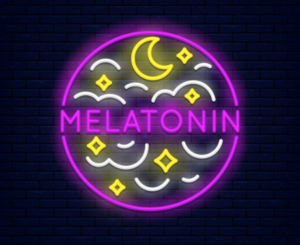A newly published study suggests that melatonin could be utilized in the ongoing scramble to contain COVID-19, citing its success in treating symptoms caused by similar viruses. The article “COVID-19: Melatonin as a potential adjuvant treatment” by Rui Zhang et al., has stated “the excessive inflammation, oxidation, and exaggerated immune response during COVID-19 infection contributes to the cytokine storm that progresses into acute lung injury (ALI) and acute respiratory distress syndrome (ARDS).” A cytokine storm is essentially what happens when the body signals to the immune system to launch an overt attack-response to the virus, it can then overcompensate, attacking healthy tissue and leading to hyper-inflammation. It’s precisely to deal with these issues that melatonin is now being eyed as a potential adjuvant treatment option. Melatonin features potent anti-oxidant, anti-inflammatory and immune-enhancing effects that may protect against lung injury resulting from viral infections.

Melatonin, often known as the ‘Sleep Supplement,’ may be helpful for easing some of COVID-19’s worst symptoms.
COVID-19 and coronavirus are two terms that seem to be used interchangeably, but it’s important to make the distinction between the two. COVID-19 is but one of many coronaviruses (or, CoVs). These are viruses which are capable of infecting humans and animals alike, and which target respiratory, nervous and gastrointestinal systems within the body. SARS was the last well-known coronavirus, but there have been several, though none have been as deadly or widespread as COVID-19.
Melatonin may not only prevent the damage done to the body from its own response to the virus, it may actually be able to shield against the virus itself. In lab experiments, it has been shown to reduce viremia, paralysis, and death in mice infected with viral encephalitis. It’s also reduced oxidative injury to the lungs, and thinned out the inflammatory components triggered by the virus’ presence.
Melatonin can also enhance the body’s overall immune system. It does this by helping to enhance the natural production and development of the body’s own natural killer cells, T and B lymphocytes, monocytes and granulocytes in both bone marrow and other tissues.
The other appealing aspect of melatonin use would be its safety and lack of side effects. Despite this, however, it’s important to stress its effects have not yet been studied on people infected with the COVID-19 coronavirus specifically. Its reputation as being both safe and effective, as well as its success in treating many of the very symptoms that make COVID-19 so deadly are, however, very promising and could lead to better outcomes for those suffering.
Until next time, stay safe, stay healthy…and stay home!


